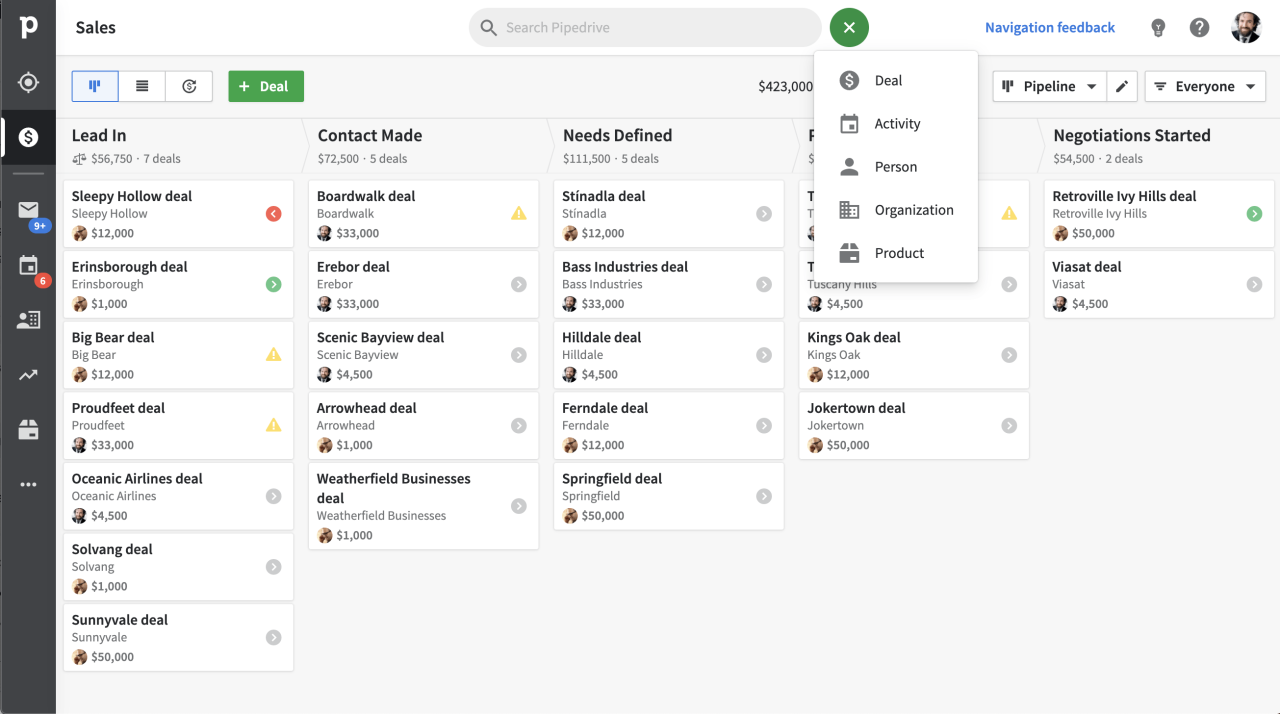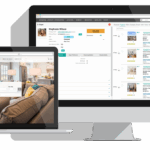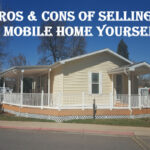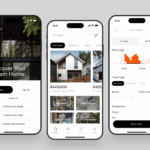Real estate crm software for mobile home dealers sets the stage for this enthralling narrative, offering readers a glimpse into a story that is rich in detail and brimming with originality from the outset. In the fast-paced world of mobile home sales, having the right tools is crucial for success. CRM software tailored specifically for mobile home dealers can revolutionize how they manage customer relationships, streamline operations, and ultimately close more deals.
This specialized software not only organizes customer information but also provides unique features designed to meet the distinct challenges faced by mobile home dealers.
Overview of Real Estate CRM Software for Mobile Home Dealers
Real estate CRM software tailored for mobile home dealers is a specialized tool designed to manage customer relationships, streamline sales processes, and enhance marketing efforts within the mobile home sector. This software is essential for mobile home dealers as it addresses the unique challenges and opportunities present in this niche market, enabling businesses to build stronger connections with prospective buyers while improving operational efficiency.The importance of CRM software in the mobile home industry lies in its capacity to centralize customer data, automate repetitive tasks, and provide insights into customer behavior.
This enables mobile home dealers to tailor their offerings based on specific preferences and needs, which is crucial in a market characterized by diverse client requirements and fluctuating demand. Furthermore, an effective CRM system enhances communication, ensures timely follow-ups, and ultimately drives sales growth.
Distinct Features of Mobile Home CRM Software
Mobile home CRM software comes with features specifically designed to cater to the distinct needs of mobile home dealers, setting it apart from general real estate CRM solutions. These features include:
- Inventory Management: A dedicated module to track and manage mobile home inventories, helping dealers monitor stock levels, sales trends, and availability of models.
- Lead Tracking: Systems in place for capturing and nurturing leads that are interested in mobile homes, ensuring no potential customer slips through the cracks.
- Customizable Sales Pipelines: The ability to create tailored sales pipelines that reflect the unique sales processes involved in mobile home transactions.
- Integrated Marketing Tools: Built-in tools for email marketing, social media integration, and campaign management tailored specifically for mobile home promotions.
- Document Management: Facilities for managing contracts, warranties, and other pertinent documents electronically, streamlining the sales process and ensuring compliance.
The combination of these specialized features provides mobile home dealers with a competitive edge, allowing them to operate more efficiently and respond to customer needs more effectively.
“The right CRM solution can transform the way mobile home dealers engage with their clients, leading to higher satisfaction and increased sales.”
Incorporating a robust CRM system not only simplifies operations but also empowers mobile home dealers to focus on building lasting relationships with their customers, ultimately driving business growth in a dynamic industry landscape.
Key Features to Look For
Real estate CRM software is pivotal for mobile home dealers seeking to enhance their operational efficiency and customer relationships. Selecting the right CRM tailored specifically for mobile home sales can significantly streamline processes and improve sales performance. To make an informed decision, it is essential to identify key features that cater to the unique needs of this niche market.The ideal CRM for mobile home dealers should encompass a variety of essential functionalities that facilitate management of leads, properties, and customer interactions.
Customization options play a crucial role in ensuring that the software aligns with specific business requirements. Additionally, seamless integrations with other tools can provide a more comprehensive solution for mobile home sales, enhancing overall efficiency.
Essential Features of CRM Software for Mobile Home Dealers
When considering a CRM for mobile home dealerships, it is vital to evaluate specific features that support sales processes and enhance customer experiences. The following features are particularly valuable:
- Lead Management: An effective lead management tool enables mobile home dealers to capture, prioritize, and follow up on leads efficiently, ensuring no potential sale slips through the cracks.
- Property Listing Management: A comprehensive property listing feature allows dealers to manage inventory, update listings in real-time, and showcase properties to potential buyers.
- Customer Relationship Management: This feature aids in tracking customer interactions, preferences, and purchase history, fostering stronger relationships and enabling personalized communication.
- Mobile Access: Given the on-the-go nature of mobile home sales, having a mobile-friendly interface ensures that dealers can access critical information anytime, anywhere.
- Reporting and Analytics: Advanced reporting tools provide insights into sales trends, customer behavior, and overall business performance, facilitating data-driven decision-making.
Customizable Options Available Within the Software, Real estate crm software for mobile home dealers
Customization is a significant aspect of selecting CRM software for mobile home dealers, allowing businesses to tailor functionalities to their specific needs. Many CRM solutions offer various customizable features, which can enhance usability and effectiveness.For instance, dealers can customize their dashboard to display key performance indicators relevant to their operations. Additionally, options to create personalized fields for customer data or property listings ensure that the CRM aligns closely with business processes.
Workflow automation features can also be tailored, allowing mobile home dealers to create specific triggers and actions that match their sales strategies.
Integrations with Other Tools Specific to Mobile Home Sales
Integrations with other software tools amplify the capabilities of CRM systems, providing a holistic approach to managing mobile home sales. Several integrations can be particularly beneficial:
- Email Marketing Platforms: Integrating with tools like Mailchimp or Constant Contact allows dealers to automate email campaigns to nurture leads and keep customers informed about new listings.
- Accounting Software: Connecting with accounting solutions like QuickBooks can streamline financial management by synchronizing sales data and automating invoicing processes.
- Social Media Management Tools: Integration with platforms such as Hootsuite enables mobile home dealers to manage social media marketing efforts, scheduling posts and tracking engagement directly from their CRM.
- Lead Generation Services: Linking with services like Zillow or Realtor.com can enhance lead acquisition efforts, allowing dealers to capture more potential buyers from multiple channels.
Benefits of Using CRM Software
The advantages of utilizing CRM software for mobile home dealers extend far beyond mere data organization. With a well-implemented CRM system, businesses can not only streamline their operations but also cultivate stronger relationships with their clients. The ability to efficiently manage customer information is crucial in today’s competitive market and can lead to significant improvements in sales and customer satisfaction.CRM software enhances customer relationship management by centralizing customer information, improving communication, and providing insightful analytics.
With access to comprehensive customer profiles, mobile home dealers can tailor their interactions and offerings, ensuring a personalized experience that fosters loyalty. By analyzing customer behavior and preferences, dealers can anticipate needs and proactively address issues, thus enhancing overall customer satisfaction.
Time-Saving Features That Impact Sales Productivity
A key benefit of CRM software lies in its time-saving features, which significantly boost sales productivity. These features allow mobile home dealers to focus on what truly matters: closing deals and maintaining customer relationships. The following points highlight essential time-saving capabilities that can streamline sales processes:
- Automated Lead Management: CRM systems can automatically capture leads from various channels, ensuring no potential customer falls through the cracks.
- Task Automation: Routine tasks such as follow-up emails, appointment scheduling, and reminders can be automated, freeing up time for sales teams to concentrate on high-priority activities.
- Centralized Customer Data: Storing all customer information in a single platform eliminates the need for time-consuming searches across multiple locations, facilitating quick access to vital data.
- Analytics and Reporting: CRM tools provide real-time analytics, enabling dealers to make data-driven decisions without spending excessive time on data compilation and analysis.
- Mobile Accessibility: Accessing CRM software on mobile devices allows sales staff to manage customer interactions on-the-go, ensuring they remain productive even when away from the office.
- Seamless Integration: Integrating CRM systems with other business tools (such as email marketing and accounting software) ensures smooth workflows and reduces the time spent switching between applications.
These features not only streamline operations but also empower mobile home dealers to spend more time engaging with customers and closing sales, ultimately leading to increased profitability.
Challenges Faced by Mobile Home Dealers: Real Estate Crm Software For Mobile Home Dealers
Mobile home dealers operate in a unique niche within the real estate market, facing a range of challenges that can impede their growth and efficiency. Without the support of Customer Relationship Management (CRM) software, these challenges can become overwhelming, leading to lost sales opportunities, miscommunication, and operational inefficiencies. Addressing these challenges is crucial to enhancing productivity and ensuring customer satisfaction.The absence of CRM software results in fragmented processes for mobile home dealers, often characterized by disorganized customer information, inefficient tracking of leads, and inadequate follow-up strategies.
As a result, mobile home dealers may experience difficulties in managing relationships with clients and prospects, leading to missed opportunities and a decline in sales performance. CRM software streamlines these processes, offering solutions that can significantly improve the overall business operations of mobile home dealers.
Challenges Without CRM Software
Mobile home dealers encounter several key challenges when they operate without the benefits of CRM software. These challenges include:
- Disorganized Customer Data: Customer information is often scattered across multiple platforms, leading to confusion and missed opportunities for follow-ups.
- Inefficient Lead Tracking: Difficulty in tracking leads and potential buyers can result in lost sales and unfulfilled customer needs.
- Inconsistent Communication: Without a centralized system, communication with clients can become inconsistent, leading to misunderstandings and dissatisfaction.
- Lack of Sales Insights: Dealers may struggle to analyze sales data effectively, making it challenging to develop strategies that drive growth.
- Time-Consuming Administrative Tasks: Manual processes for managing customer interactions and follow-ups can drain valuable time and resources.
How CRM Software Addresses These Challenges
CRM software offers a comprehensive solution to the challenges faced by mobile home dealers. By centralizing data and automating processes, CRM systems help streamline operations and enhance customer relationships.
- Centralized Data Management: CRM software consolidates customer information in one location, making it easily accessible and organized.
- Effective Lead Management: Automated lead tracking features allow dealers to monitor potential buyers seamlessly, ensuring timely follow-ups and engagement.
- Improved Communication: With integrated communication tools, CRM systems facilitate consistent and effective interaction with clients, improving customer experience.
- Advanced Analytics: CRM software provides insightful data analytics that help dealers make informed decisions and shape their sales strategies accordingly.
- Streamlined Administrative Processes: Automation of routine tasks allows dealers to focus more on building relationships and closing sales rather than getting bogged down in administrative duties.
Comparison of Traditional Methods Versus CRM-Enhanced Methods
The distinction between traditional methods of managing mobile home sales and CRM-enhanced methods is significant. The following table illustrates this comparison:
| Aspect | Traditional Methods | CRM-Enhanced Methods |
|---|---|---|
| Data Management | Scattered across spreadsheets, papers, and emails | Centralized database accessible from any device |
| Lead Tracking | Manual tracking with phone logs and emails | Automated tracking and reminders for follow-ups |
| Communication | Inconsistent and fragmented across various channels | Streamlined communication through integrated tools |
| Sales Insights | Difficult to analyze; often relies on guesswork | Data-driven analytics for strategic decision-making |
| Administrative Tasks | Time-intensive manual processes | Automated workflows that save time |
Implementing CRM software significantly transforms how mobile home dealers operate, addressing the persistent challenges they face and enabling them to thrive in a competitive market. The transition from traditional methods to a CRM-enhanced approach not only improves efficiency but also fosters better relationships with customers, ultimately driving sales and growth.
Mobile Accessibility and User Experience
In today’s fast-paced world, mobile accessibility is crucial for real estate CRM software, especially for mobile home dealers who are often on the move. The ability to access critical data and tools from any location empowers dealers to manage their operations efficiently, enhancing productivity and responsiveness to client needs. This flexibility not only improves workflow but also ensures that important information is always at their fingertips.A user-friendly interface and a seamless user experience are vital components of mobile CRM applications.
These aspects ensure that users can navigate the software intuitively, allowing them to focus on their core responsibilities rather than struggling with technology. Optimizing usability for mobile home dealers involves considering their specific workflows and the conditions under which they operate, such as limited internet access or the need for quick updates during appointments.
Best Practices for User Interface and User Experience
Creating an effective mobile CRM application requires adherence to several best practices aimed at enhancing user experience. These practices promote ease of use and ensure that mobile home dealers can efficiently manage their tasks. Key aspects to consider include:
- Simplicity: A clean and straightforward design helps users quickly understand the layout and find essential features without unnecessary distractions.
- Responsive Design: The application should automatically adjust to different screen sizes and orientations, ensuring usability on various devices.
- Quick Access to Features: Frequently used functionalities should be readily accessible, potentially through customizable dashboards for personalized user experiences.
- Offline Functionality: Given that mobile home dealers may work in areas with limited connectivity, the ability to access key features offline is essential.
- Intuitive Navigation: A well-structured menu and clear labeling of functions facilitate quick navigation, making it easier for users to find what they need.
- Consistent Updates: Regular updates that enhance performance and user experience should be implemented, addressing any feedback from users promptly.
The significance of these practices cannot be overstated, as they directly contribute to user satisfaction and efficiency in day-to-day operations.
Examples of Mobile CRM Applications for Mobile Home Dealers
Several mobile CRM applications have been designed with the specific needs of mobile home dealers in mind, offering features that enhance usability and accessibility. These applications provide real-time data and tools that allow dealers to manage their inventory, track leads, and engage with clients effectively. Notable examples include:
- Salesforce Mobile: Renowned for its robust features, Salesforce Mobile offers a customizable platform that allows mobile home dealers to manage customer relationships and sales processes seamlessly.
- Zoho CRM: Zoho’s mobile app provides quick access to customer information, sales analytics, and lead tracking, all optimized for mobile devices.
- HubSpot CRM: HubSpot’s mobile application is user-friendly, offering functionalities that cater specifically to sales processes, including contact management and sales pipeline tracking.
- RealtyJuggler: This application specifically targets real estate agents, providing an easy-to-use mobile interface that includes features for managing listings and contacts efficiently.
These applications exemplify how integrating mobile accessibility with thoughtful user experience design can significantly enhance the operational capabilities of mobile home dealers, fostering better management of customer relationships and sales activities.
Cost Considerations
Determining the cost of CRM software for mobile home dealers involves a variety of factors that can significantly impact pricing. Understanding these factors is essential for mobile home dealers to make informed decisions when selecting CRM solutions tailored to their business needs.The pricing of CRM software can depend on several variables including the number of users, the specific features required, the level of customization needed, and the type of deployment (cloud-based vs.
on-premises). Additionally, ongoing costs such as maintenance, support, and updates can also influence total expenditures. It’s important for mobile home dealers to analyze these factors carefully to ensure they choose a solution that aligns with their operational budget.
Pricing Models Offered by CRM Providers
Different CRM providers offer various pricing models, which can affect the overall cost of ownership. Understanding these models can help mobile home dealers select the best option for their unique requirements. Below is a comparison of common pricing models and examples from various providers.
| Provider | Pricing Model | Cost Estimate | Features Included |
|---|---|---|---|
| Provider A | Subscription | $30/user/month | Lead management, Reporting, Integrations |
| Provider B | One-time License Fee | $5,000 (one-time) | Full features, Customization options |
| Provider C | Freemium | Free (limited features) | Basic CRM functionalities |
| Provider D | Tiered Pricing | $50 – $200/user/month | Advanced analytics, Custom integrations, Support |
The potential return on investment (ROI) for implementing CRM software can be significant for mobile home dealers. By streamlining operations, improving customer relationships, and enhancing data management, dealers can expect to see increased sales and better customer retention. For example, a mobile home dealership that previously utilized manual processes for tracking leads could see a 20% increase in conversion rates after implementing a CRM system, ultimately leading to higher profits.
“Implementing a CRM system can lead to measurable ROI through enhanced customer engagement and streamlined business processes.”
By evaluating these cost considerations and potential ROI, mobile home dealers can make strategic decisions that not only improve their operational efficiency but also contribute to long-term profitability.
Implementation Strategies
Successfully implementing CRM software within a mobile home dealership requires a structured approach to ensure that all stakeholders are on board and that the transition is smooth. This involves careful planning, effective training, and ongoing support to maximize the benefits of the software for sales teams and management alike.To start, it is vital to have a clear implementation plan that Artikels each step of the process.
This plan should cover everything from initial setup to full staff onboarding. Engaging all team members early in the process helps alleviate resistance and fosters a culture of collaboration.
Steps for Successful Implementation
A well-defined implementation strategy provides a roadmap for integrating CRM systems into dealership operations. Consider the following essential steps:
- Assessment of Needs: Evaluate your dealership’s specific requirements to identify the features that will be most beneficial.
- Data Migration: Plan and execute the transfer of existing customer and inventory data into the new CRM system. This process ensures continuity and prevents data loss.
- System Configuration: Customize the CRM settings to suit your dealership’s workflow and business processes, ensuring it aligns with your sales strategies.
- Integration with Existing Tools: Ensure the CRM software integrates seamlessly with other systems used in the dealership, such as financing and inventory management tools.
- Testing Phase: Conduct thorough testing of the software with a small group of users to address any issues before a full rollout.
- Full Deployment: Roll out the software dealership-wide, ensuring all staff are aware of the launch and its importance.
Training Methods for Staff Proficiency
Training is critical to ensure that all staff members can effectively utilize the CRM software. Effective training methods include:
- Hands-On Workshops: Organize interactive sessions where staff can practice using the CRM in a guided environment, reinforcing learning through real-world scenarios.
- Online Training Modules: Provide access to on-demand training videos and tutorials that staff can revisit as needed to refresh their skills.
- Role-Specific Training: Tailor training sessions to different roles within the dealership, focusing on how each group can leverage the CRM features relevant to their responsibilities.
- Mentorship Programs: Pair less experienced staff with CRM champions within the dealership who can offer ongoing support and advice.
Ongoing Support Options from CRM Providers
Post-implementation support is crucial for maintaining the effectiveness of the CRM system. Reliable CRM providers typically offer several ongoing support options:
- 24/7 Customer Support: Access to round-the-clock technical support helps troubleshoot any issues that arise during normal business hours and beyond.
- Regular Software Updates: CRM providers often roll out updates that enhance functionality and security. Staying informed about these updates ensures the dealership remains competitive.
- Dedicated Account Manager: Some providers assign a dedicated account manager who can assist with strategic planning and help address specific needs as they arise.
- User Community Forums: Many CRM vendors offer online forums where users can share insights, ask questions, and learn best practices from one another.
Customer Feedback and Reviews
Gathering customer feedback is essential for evaluating the effectiveness of CRM software tailored for mobile home dealers. By understanding users’ experiences and satisfaction levels, dealers can make informed decisions about the tools they use, ensuring that these systems enhance efficiency and customer relationships.Effective gathering of customer feedback can involve various methods, each providing valuable insights into the software’s performance. Surveys, interviews, and direct user feedback through support channels can all contribute to a comprehensive understanding of customer satisfaction.
Criteria for Assessing Customer Satisfaction with CRM Tools
To accurately assess customer satisfaction with CRM software, it’s vital to establish clear criteria. The following points Artikel key factors that should be evaluated:
- User Interface and Experience: The ease of navigation and overall aesthetics of the software can greatly influence user satisfaction.
- Functionality: The range of features provided, such as lead management and reporting capabilities, determines the tool’s effectiveness in meeting user needs.
- Support and Training: Availability of customer support and training resources plays a critical role in user satisfaction, particularly during onboarding.
- Integration Capabilities: The ability of the CRM to integrate with existing software and tools can enhance workflow and satisfaction.
- Performance and Reliability: Consistent uptime and quick response times are crucial for maintaining user trust and satisfaction.
- Cost-Effectiveness: Users often evaluate whether the value received justifies the cost of the software.
Customer reviews significantly influence the selection of CRM software for mobile home dealers. Positive reviews can enhance a software’s credibility and encourage potential buyers to consider it. Conversely, negative feedback can deter users from choosing a particular product, as decision-makers often rely on the experiences of others to guide their purchasing choices.
“Customer reviews serve as social proof, influencing the credibility and attractiveness of CRM solutions.”
By leveraging customer feedback and reviews, mobile home dealers can ensure they select CRM software that not only meets their operational needs but also enhances overall user satisfaction.
End of Discussion

In conclusion, implementing real estate CRM software for mobile home dealers is not just a technological upgrade; it’s a strategic move that can enhance productivity and improve customer satisfaction. By addressing common challenges and offering mobile accessibility, these systems empower dealers to thrive in a competitive marketplace. As the industry continues to evolve, leveraging the right CRM tools will undoubtedly make a significant difference in operational success and customer engagement.




